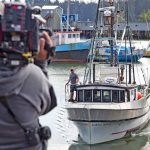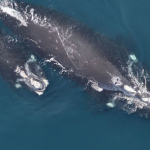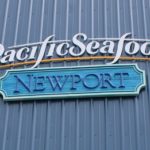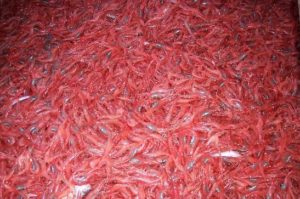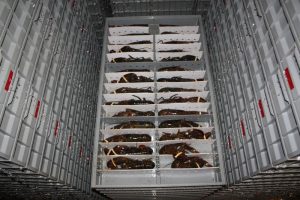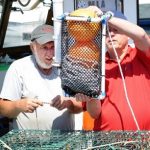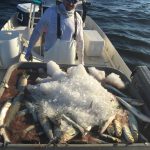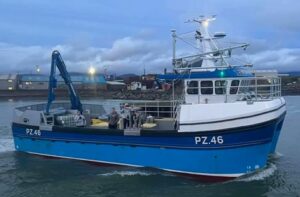Tag Archives: Maine Lobstermen’s Association
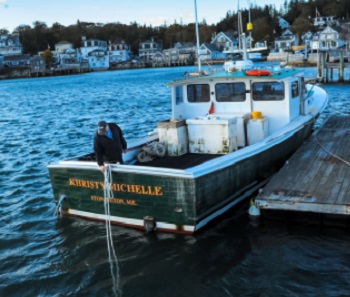
Despite an uncertain start to the fishery’s season, Maine lobster rolls on as the industry pivoted to new markets
Stonington lobster fisherman John Williams usually hauls his boat out in February for annual maintenance and paint in preparation for the start of the spring fishing season. “Then COVID started,” The health emergency was worsening and the economy shutting down. That included one of the lobster industry’s biggest markets — restaurants. The large cruise ship and casino markets also slammed shut. International freight and shipping to China, emerging as a large consumer of lobster, had nearly stopped. “I got thinking about it and said, ‘This doesn’t look very good. We won’t have any market,’” Williams says. >click to read< 10:31
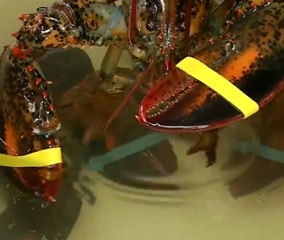
Maine lobster industry salvaged its summer despite pandemic
The Maine lobster industry is in the midst of a multiyear boom, and fishermen have caught more than 100 million pounds (45,360,000 kilograms) for a record nine years in a row. It’s hard to guess whether they’ll reach that total again, but summer 2020 hasn’t been half bad for a season in which many fishermen expected collapse, said Kristan Porter, president of the Maine Lobstermen’s Association. “Especially early in the season when nothing was open, no restaurants were open. We were thinking it would be a complete disaster,” Porter said. “If it stays like this, we can struggle through and have a season, and then get ready to fish next year.”>click to read< 17:03
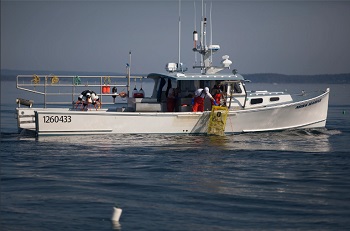
This lobster season they expected hell, but got high water
Captain Nick Muto of Chatham, Massachusetts, expected this summer’s lobster fishing to be a disaster. With restaurant shutdowns and other supply chain issues, he was expecting to have to hustle hard to get good prices for his ocean delicacies. But he was pleasantly surprised. “I hate to say it out loud, but things are right now looking very good,” he said. Like many fishermen, Muto shifted to selling more lobsters directly into local markets, whether to restaurants or even right off the docks to consumers. Patrice McCannon, executive director of the Maine Lobstermen’s Association, said government relief programs like the CARES Act and Payment Protection Program have helped harvesters stay afloat. >click to read< 18:11

Federal judge gives NOAA time to craft new whale rules
A federal district court judge, in a decision issued late on Wednesday, Aug. 19, gave the National Oceanic and Atmospheric Administration’s National Marine Fisheries Service (NMFS) nine more months to craft new rules to protect endangered right whales from entanglement in lobster fishing gear. Judge James E. Boasberg also denied a request by conservation organizations for an immediate ban on lobster fishing in a vast area of the ocean south of Nantucket Island in Massachusetts. >click to read< 09:45
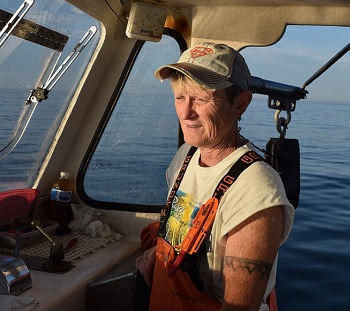
For New England lobstermen, resilience in ‘a season of uncertainty’
This is a tough season so far for Ms. Rosen, but over her 15 years of lobstering off Vinalhaven, Maine, she’s always been a better fall fisherman, she says. This season is like no other – the lobsters are slow to appear, but more than that, the coronavirus has caused trade to plummet and tourists to stay home. Rosen is selling her lobster for $3.35 per pound – a dollar less than last year – and she’s torn between wanting to catch more and worrying about flooding the market by catching too much. To supplement, she picked up a job with UPS in the afternoons after fishing. Ms. Rosen often fishes for her own bait rather than buying it.,, On Cape Cod, Glen Sveningson has been getting about $5.30 a pound wholesale, but it’s starting to fall. “Last year was one of the best years I’ve seen,” he says. >click to read< 13:17
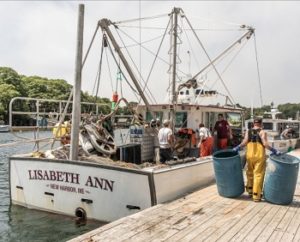
Prime Lobster Season Is Here, but Mike Dawson Isn’t Celebrating.
Mike Dawson (self-employed) Location: New Harbor, Maine Employees: 1, Status: Open, essential industry. The lobsters have just started to “come on” for the 2020 season, which in the lexicon of a Maine lobsterman means the annual lobster migration and catch has begun for the summer. Normally, 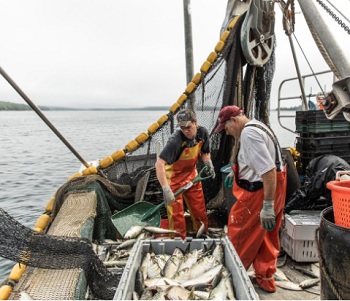 that would signal a time for the state’s 5,000 lobster harvesters to spend all their time setting and hauling traps. Not this year. This season is marked by weak demand from restaurants across the country and seafood processors that are taking less meat during the coronavirus pandemic. International markets have slammed shut. As a result, lobster prices are weak.Some lobstermen are still sitting on the sidelines, collecting unemployment. Others, like Mike Dawson, who fishes off New Harbor, Maine, have diversified by catching pogeys, or bait fish, in addition to catching lobster. 16 photo’s, >click to read< 16:05
that would signal a time for the state’s 5,000 lobster harvesters to spend all their time setting and hauling traps. Not this year. This season is marked by weak demand from restaurants across the country and seafood processors that are taking less meat during the coronavirus pandemic. International markets have slammed shut. As a result, lobster prices are weak.Some lobstermen are still sitting on the sidelines, collecting unemployment. Others, like Mike Dawson, who fishes off New Harbor, Maine, have diversified by catching pogeys, or bait fish, in addition to catching lobster. 16 photo’s, >click to read< 16:05

Northern Right Whales Are on the Brink, and Trump Could Be Their Last Hope
The task of responding will fall to an unlikely champion, President Trump, whose recent appeals for support from Maine lobstermen could clash with the task of saving the right whale. Peter Corkeron, a senior scientist at the New England Aquarium who spent nearly a decade chronicling the gruesome deaths of right whales as the director of the National Oceanic and Atmospheric Association’s research program for large whales, said he feared the listing would have little impact. “Lobstermen certainly recognize the dire circumstance that the right whale species is in right now,” Patrice McCarron, “We’re in this awkward situation where right whales are not doing great, and it’s certainly not the fault of the commercial fisheries.”PEER also filed a complaint last year with the inspector general of the Commerce Department, which oversees NOAA, arguing that federal officials intent on reopening fishing areas have been ignoring their own scientists on climate change as well as other threats to whales. >click to read< 11:37

Coronavirus results in falling New England lobster prices
The American lobster fishing industry, based mostly in Maine, has had to cope with a supply chain that has been disrupted by the pandemic. Wholesale prices were lower than previous years this spring, and consumers started to see lower prices at markets earlier in June. Members of the industry said prices could likely fall more in July. America’s lobster catch typically picks up in the summer, when lobsters shed their shells and reach legal trapping size. This year, fishers will likely bring lobsters to the docks in a time when restaurants are slowed or shuttered and seafood processors aren’t taking nearly as many of the crustaceans, industry members said. >click to read< 08:25

Judge James Boasberg’s court ruling puts future of Maine lobster industry at risk
United States District Judge James Boasberg’s order found that the National Marine and Fishery Services violated the Endangered Species Act by licensing the lobster fishery. In the second phase of the case, the judge will decide what action is necessary to rectify the situation. The Maine Lobstermen’s Association, an intervenor, and other industry stakeholders around the Gulf of Maine, will submit information for the judge to consider in his ruling.,, Activist Richard Strahan filed a motion in federal court in Bangor to stop fishing in Maine May 15, citing violations of the Endangered Species Act, Maine Public reported. The Maine Department of Marine Resources has no intention of curtailing lobster permits, said spokesperson Jeff Nichols. >click to read< 09:45

“Prince of Whales” threatens lawsuit against Maine Lobstering Union members
Richard Max Strahan has threatened to sue the Maine Lobstering Union (MLU), the Maine Lobstermen’s Association (MLA) and their individual members for damages under the federal Racketeer Influenced and Corrupt Organizations (RICO) Act. The statement was contained in papers Strahan filed Monday in the U.S. District Court in Bangor in a lawsuit he began last year under the self-styled name “Man Against Xtinction.” Naming the commissioner of the Department of Marine Resources and the assistant administrator of the National Marine Fisheries Service (NMFS) as defendants, the suit asked the court to rule that the decision by NMFS to allow the Maine lobster fishery violates the law governing federal administrative procedures and, consequently, the federal Endangered Species Act. >click to read< 11:40
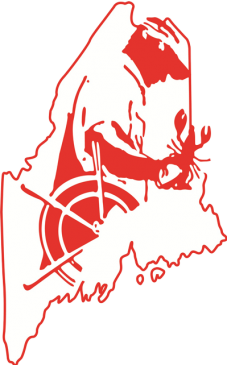
Court ruling threatens Maine’s lobster industry, MLA seeks donations to support its intervention in the case
Thousands of Maine’s family-owned lobstering businesses are at risk of extinction because of a recent federal court ruling citing a violation of the Endangered Species Act by the National Marine Fisheries Service. “The world’s most sustainable fishery could be shut down. And that is something that the Maine Lobstermen’s Association cannot let happen,” the association said in a press release today. “The MLA has launched a campaign to raise $500,000 to save Maine’s lobster industry,” Executive Director Patrice McCarron said in the release. The MLA is an intervenor in the court case and is the only organization in Maine that has been granted standing to participate in the case. >click to read< 15:20
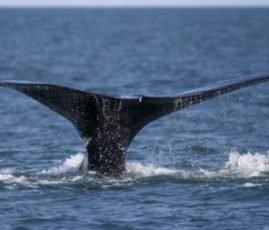
North Atlantic Right whale trouble: Lawsuit on protections could last for months
Environmental groups sued the U.S. government with a claim that regulators’ failure to protect the North Atlantic right whale from harm was a violation of the Endangered Species Act, and U.S. District Judge James Boasberg ruled April 9 that they were right. The government, environmentalists and industry members who are involved in the lawsuit must still return to court to determine a remedy. Boasberg ruled that the risk posed to the whales by the lobster fishery was too great to be sustainable, and that a remedy could ultimately result in new restrictions on lobster fishing. Members of the industry, including the Maine Lobstermen’s Association, have vowed to fight to protect the fishery. >click to read< 11:27
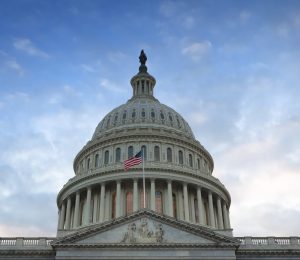
Coronavirus: Maine Fishermen still waiting to access pandemic relief funds
On March 27, Congress passed the Coronavirus Aid, Relief, and Economic Security (CARES) Act that, among other provisions, authorized one-time “economic impact payments” of $1,200 to adult U.S. residents with incomes of under $99,000 plus an additional payment of $500 for each child in a household. The CARES Act also established the Paycheck Protection Program to provide $349 billion in loans to businesses affected by the coronavirus shutdowns. Fishermen were eligible to apply for those loans as well as loans under the Economic Injury Disaster Loan program, but many did not realize that was the case. “Due to unclear guidance, many fishermen were initially told by their lenders they were not eligible for the Paycheck Protection Program,” lobster fisherman and state Rep. Genevieve McDonald (D-Stonington) said Monday. >click to read< 07:49
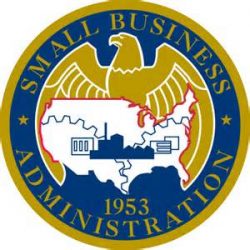
Coronavirus: Maine fishermen say they missed out on pandemic relief program
Thousands of Maine fishermen and others in the seafood sector could have qualified for pandemic relief through the Paycheck Protection Program, but many were, apparently, unable to access the benefits before the money ran out. Ben Martens, executive director of the Maine Coast Fishermen’s Association, said many of the industry’s on-the-water workers did not realize they were likely to qualify for the forgivable loans and other assistance that was briefly made available through the Small Business Administration. >click to read< 15:11
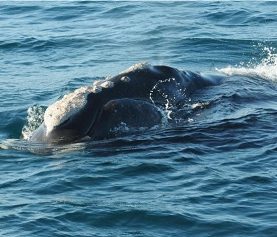
Ruling in whale case signals turmoil for lobster industry
It is too early to know exactly how the ruling in a lawsuit brought by a group of environmental organizations will affect the lobster industry. U.S. District Court Judge James Boasberg asked those groups and NOAA to file briefs suggesting an appropriate “injunctive remedy” against further violations of the Endangered Species Act. Whatever that remedy may be, it is likely to come soon and have a significant impact on Maine lobstermen. During the past several months, Department of Marine Resources Commissioner Patrick Keliher hosted a series of meetings along the coast with members of the lobster industry,, Throughout the process, Keliher warned that the pending federal lawsuit against NOAA was a “wild card” that could affect the regulatory process in undetermined ways. Last week, Keliher said that with the release of the court’s decision the wild card had been played. >click to read< 17:51
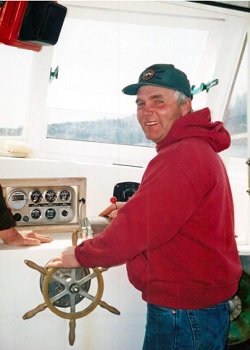
Arnold “Arnie” Gamage Jr, has passed away, was a founding member of the South Bristol Fisherman’s Co-op
Arnold “Arnie” Gamage Jr., 67, of South Bristol, passed away unexpectedly on the afternoon of March 4, 2020 in Rockport. Born in Damariscotta on Dec. 31, 1952, he was the son of Arnold Sr. and Gloria (Chipman) Gamage. Arnie grew up in South Bristol, attending local schools and graduating from Lincoln Academy. He began lobstering at the age of 10, following in his father’s footsteps, and creating a family tradition that continues to be carried on today. Arnie was also very involved in Maine’s lobstering industry, and was one of the founding members of the South Bristol Fisherman’s Co-op, serving on their board for many years. He was also a longstanding board member of the Maine Lobstermen’s Association, more, >click to read< 14:20

If the info comes from some enviro group, its good! Info from the lobster fishermen? Not good!
We’re out fishing for news as always, and we never know what we’ll find. Saw this letter to the editor: Whales, and realized this letter is a by-product of the enviro group anti-fishing campaign.,,, From the letter, In the editorial you say, “According to the Maine Lobstermen’s Association analysis of data …” Seriously? We are going to rely on their analysis to risk the extinction of a highly evolved mammal? The editorial further reads, “Only 8 percent (of right whale deaths) resulted from entanglement in trap or pot fishing gear,,, >click to read< 11:34

Maine lobster group backs Canadian fishermen over right whale deaths
The president of the Maine Lobstermen’s Association, Kristan Porter, opposes a move to ban some Canadian seafood because of the deaths of endangered North Atlantic right whales in Canadian waters. “I think that doing that type of thing would only hurt the industry and not really solve the problem,” said Porter, a commercial fisherman from Cutler, Maine. Last September, nine conservation groups signed a letter urging the United States to ban Canadian snow crab imports when a new U.S. marine mammal protection act comes into force in 2022. >click to read< 07:54
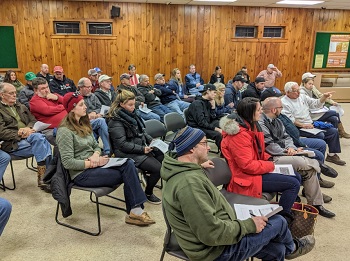
New Hampshire: Lobstermen lament coming whale entanglement regulations
Seacoast lobstermen weighed in on the proposal at a meeting Thursday night in Portsmouth with the state Department of Fish and Game. They’re still skeptical that their fishery poses enough of a threat to the whales to merit new regulations. And they want more details and input on the new, more easily breakable lines or gear they’ll have to use to keep whales from being entangled. >click to read< 07:10
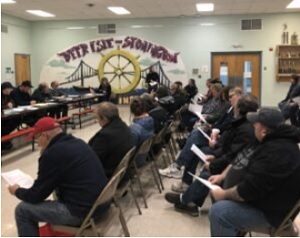
Lobstermen throw cold water on Maine state plan to protect whales
Fishermen in the heart of Maine’s $485 million lobster industry don’t like a state proposal to protect endangered right whales from buoy lines, arguing that it forces them to give up too much to fix a problem they aren’t causing.About 75 people packed a local lobster board meeting in Deer Isle on Thursday night to vent about the plan, which they argue is overly complicated, puts them in danger and is unlikely to help the species it is trying to save. >click to read< 09:40
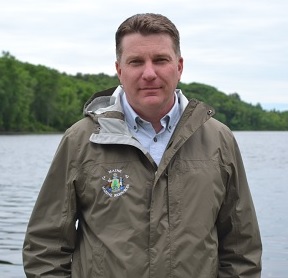
Maine Seeks to Aid Lobstermen as Federal Whale Protections Loom
On Friday, the state’s Department of Marine Resources released a plan it says protects the endangered whales and lobstermen, whom the feds say need to do more to prevent traps and lines from killing the whale. Maine’s suggestions include having lobstermen use ropes with weak points the whales could easily break and calls for a 25% reduction in the amount of vertical trap lines. >click to read< 08:29
Maine Plan Aims To Reduce Lobstering Impact On Right Whales – The Maine Department of Marine Resources tweaked its October proposal to balance the needs of lobstermen while protecting the whales,,, >click to read< 09:32

“This is our line in the sand,”: Facing new threats, lobstermen take hard line against right whale protections
“My administration will not allow any bureaucrat to undermine our lobster industry or our economy with foolish, unsupported, and ill-advised regulations,” Governor Janet Mills told a crowd of cheering lobstermen at a protest this summer at a protest this summer in Stonington. The backlash started shortly after a government-appointed team of scientists, fishermen, and others urged the agency to require lobstermen to reduce their buoy lines, among other measures.,, But with increasingly vocal protests across Maine’s rugged coast from rank-and-file lobstermen, the state’s leaders — including their entire congressional delegation,,, >click to read< 12:17

Lobstermen’s Association rejects DMR whale proposal
Efforts to find consensus over how to protect endangered North Atlantic right whales from entanglement in fishing gear without decimating the Maine lobster industry took a blow last week. The Maine Lobstermen’s Association (MLA) announced that it would not support a plan developed by the Department of Marine Resources “because it seeks reductions that exceed the documented risk posed by the Maine lobster fishery” and “creates unresolved safety and operational challenges for some sectors of the lobster industry,”,,, >click to read< 10:43
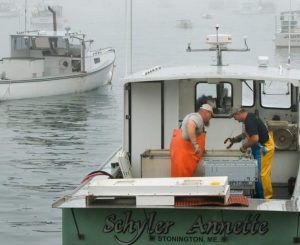
Second Maine lobstering group rejects state’s plan for protecting whales
The Maine Lobstermen’s Association staked out its position on the Maine Department of Marine Resources’ proposal with a board vote Thursday night. Director Patrice McCarron would not disclose the vote breakdown, calling that a private matter. The group did, however, release a statement about why it couldn’t support the plan. “It seeks reductions that exceed the documented risk posed by the Maine lobster fishery,” >click to read< 06:16
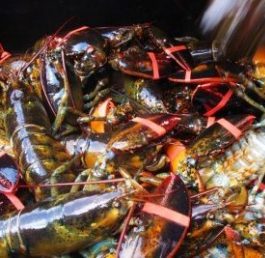
Lobster industry split over whale protection plan called Maine’s ‘line in the sand’
Some fishermen at the South Portland meeting cheered the plan. One gave Keliher a standing ovation, saying the new proposal was much better for the lobster fleet than the task force plan rolled out in August that called for 50 percent fewer buoy lines. But fishermen in Ellsworth and Waldoboro, the site of the first two meetings this week, urged Keliher to resist federal pressure to make concessions that would hurt lobster fishermen when they pose no real threat to the whale.,, “Grow a backbone,” one lobstermen told Keliher. “Don’t give them anything now.” >click to read< 07:47
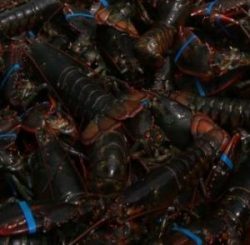
Meetings this week – Lobster industry braces for right whale changes amid turbulent times
“Right now, we’re all fishing hard, so it’s taking our mind off it some, but it feels like we’ve been waiting and worrying about what whales might do to us for so long now,” said Jake Thompson, a Vinalhaven lobsterman. “We can manage the rest of it, but whales? Everybody’s worried about whales.” Lobstermen will have a chance to weigh in on Maine’s plan to protect the endangered right whale from buoy line entanglements at Maine Department of Marine Resources meetings in Ellsworth, Waldoboro and South Portland this week. >click to read< 06:51
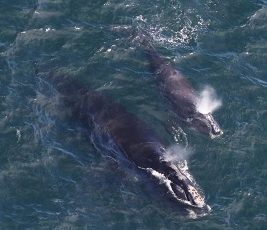
Maine’s lobstermen willing to work with feds to protect whales
The Maine Lobstermen’s Association is one of the key stakeholders in an effort to better protect the North Atlantic right whales,,, A federal plan that’s being developed to help save the whales would remove miles of lobster trap rope from the waters off Maine.,, regulators have also recently expressed desire to work with the lobstermen, who have said the whale protection plan placed too much onus on their business, which is an industry vital to Maine’s economy. Chris Oliver, NOAA’s assistant administrator for fisheries, said this month that federal managers are also “diligently working with our Canadian counterparts to address both ship strikes and entanglements in Canadian waters.” >click to read< 14:18

NOAA answers lobstermen’s critique of whale rules science
NOAA Fisheries released a more detailed response Wednesday to criticisms of the science it used to develop new protections for North Atlantic right whales,,, The response was attached to a letter from NOAA assistant administrator Chris Oliver to Patrice McCarron, executive director of the Maine Lobstermen’s Association. (The letter is attached at the article) >click to read< 14:50
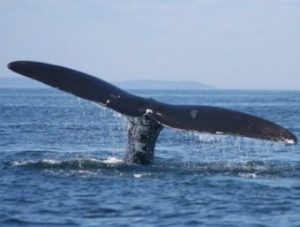
Eighteen scientists, environmentalist, blast Maine lobstermen’s stand on whale safety
“Reducing entanglement in East Coast waters of the United States is a critical part of a comprehensive strategy for right whale survival and recovery,” Scott Kraus, chief scientist for marine mammals at New England Aquarium’s Anderson Center for Ocean Life, and Mark Baumgartner, associate scientist at Woods Hole Oceanographic Institution and chairman of the North Atlantic Right Whale Consortium, said in a letter Tuesday to Sen. Susan Collins, R-Maine. >click to read< 19:44

Senator Collins proposes changes to Federal reforms to support Maine lobster industry, protect whales
“Over the last several months, we have had a number of conversations with lobstermen, the scientific community, environmentalists, and state regulators,” Sen. Collins and the members wrote in their letter. “The message has been undeniably clear: these whales require increased protections in order to ensure the viability of the species — and that focusing all of our risk reduction efforts on Maine’s lobster fishery will not get us there.” >click to read<11:44


































